How 'Manhunt: Unabomber' built Ted Kaczynski's backstory: Your burning questions answered
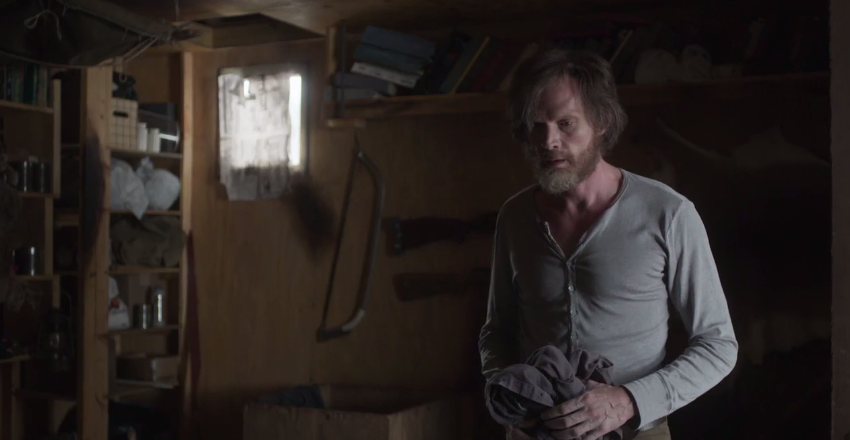
Episode 6 of Discovery’s Manhunt: Unabomber, which aired Tuesday night, dove deep into Ted Kaczynski’s troubled life, from the first bomb he made in grade school to his years at Harvard University, where he was recruited for a CIA-sponsored brainwashing experiment, to whether he was capable of keeping his promise to stop mailing bombs if his 35,000-word manifesto was printed for all to read.
As Paul Bettany, who stars as adult Kaczynski, wants to clearly reiterate, the TV show is in no way looking for sympathy for Kaczynski, who killed three people and injured 23 in his 17-year campaign — but it does try to elicit your empathy. “There’s a part of Ted that was a child and 16-years-old and experimented on by the CIA, and humiliated, and that is an awful thing for anybody to have gone through. I think there’s an argument to say that it went somewhere toward destroying him and weaponizing him one way or another,” Bettany says. “We’re not going to get anywhere if the conversation ends with, ‘He’s a monster,’ and not with, ‘How the f**k did this person not feel that this was his home anymore? That somehow he wasn’t welcome in this world.’ That’s a really interesting question to ask ourselves: Why do children — not just in this country, but yes, from this country, and in the UK and throughout Europe — feel so alienated in their country that they run off to Syria, for instance? How can we help people who experience such intense alienation that they no longer feel a part of their communities?”
To answer some of our burning questions about how the show built Kaczynski’s backstory, Yahoo TV spoke separately with Bettany, series co-creator/writer Andrew Sodroski, and director/showrunner Greg Yaitanes.
The episode is framed as a letter Ted is writing to his brother, David, contemplating how he ended up the man he became and whether it’s too late to change. Did he really express those ideas in a letter to David?
Andrew Sodroski: There is no one document where he lays it all out like that. That kind of emotional landscape is something that you piece together. I read thousands of pages of letters by Ted Kaczynski, his autobiography, all these different things. Really for me, it came out of this paradox that he promised to stop bombing if his manifesto was published and yet when they arrested him, they found a new bomb under his bed. I talked to Jim Fitzgerald [the FBI profiler played by Sam Worthington in the series] a lot about this, and he was like, “Well, that was his hobby. He probably was never going to send the bomb but he had nothing else to do.”
I started really thinking about this, like, “Okay, here is a guy, he says he’s going to stop bombing, and he probably means it. He actually really wants to stop bombing, but he somehow ends up, despite himself, with a bomb under his bed.” The idea of telling the story of the last bomb gave me the way into piecing together all those character moments — this desire to change and the inability to change. Threading those lines and that complexity gave me both the form of the episode — which is one day, publication day, the day when his whole life is supposed to change — and then also the content of that letter.
Greg Yaitanes: Andrew and I differ on that bomb under Ted’s bed. Andrew believes that Ted was going to stop bombing; I believe that there was a bomb under Ted’s bed and Ted would not have been able to stop himself and would have sent it. That difference actually helped us arrive on the approach. We really zeroed in on the addiction aspect of his bomb-making: Can a guy who’s done something his whole life separate from it?
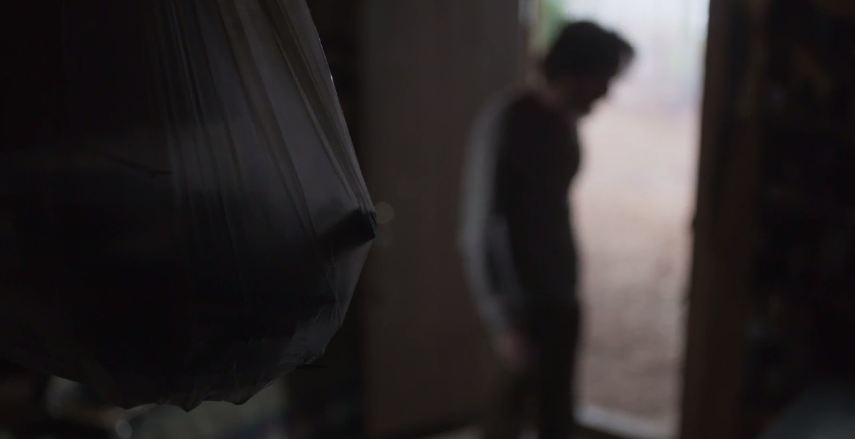
Paul Bettany: There were days when Greg and I would turn up and we’d have an hour or two before we started shooting, and we’d just sit in the cabin and talk things through and figure stuff out. How do we express that — whether he’s gonna have a clean slate and he’s not build bombs anymore? We shot it like it was an addiction: he packs [the bomb materials] away, and we have the bag in the foreground, and he’s looking at the bag, and the peace that brings him of finally getting a hit again.
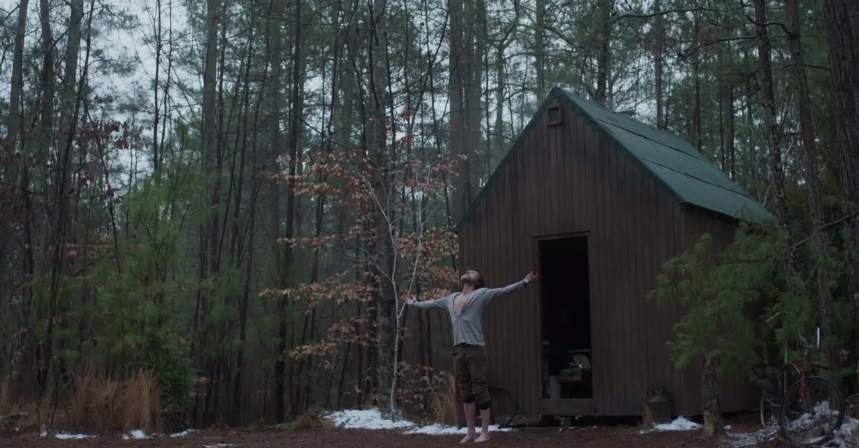
Yaitanes: We went into the elation [when he believes he can stop], which led to the dancing, which was a great piece out of Ted’s journal, how he would dance to Bach music.
Bettany: He writes about a dance for the rabbits that he would do, and it was a really pretty uneventful dance. He describes it as stomping his left foot and stomping his right foot, and so we thought, “Well, that’s eminently uncinematic. What can we do?” We put some music on and had him dance with himself and then invite, rather sadly, an imaginary partner to waltz with him, and sort of somehow express that longing for somebody that he had a lot of difficulty expressing.
Yaitanes: Then that [lure of the last bomb] was the spine of which to play against as he struggles to be able to be alone with himself, which was something he could never do. For a guy that talked about how mass entertainment is distracting us, he had his own distraction, which was making bombs and killing people.
We see young Ted (Grady Port) build his first bomb, in retaliation for losing a friend after that classmate got a girlfriend. Is that story true?
Sodroski: He had this intense friendship with this boy when he was in grade school, and later he wrote this weird short story called How I Blew Up Harold Snilly, which is a semi-fictional account of his first bomb, which was in chemistry class in grade school. I took a lot of his grade school experiences and condensed them into that one relationship, but there is this way in which, even early on, Ted was trapped in this cycle of getting close to somebody, then [feeling betrayed], and then lashing out in this self-destructive way. That became the story of his life.
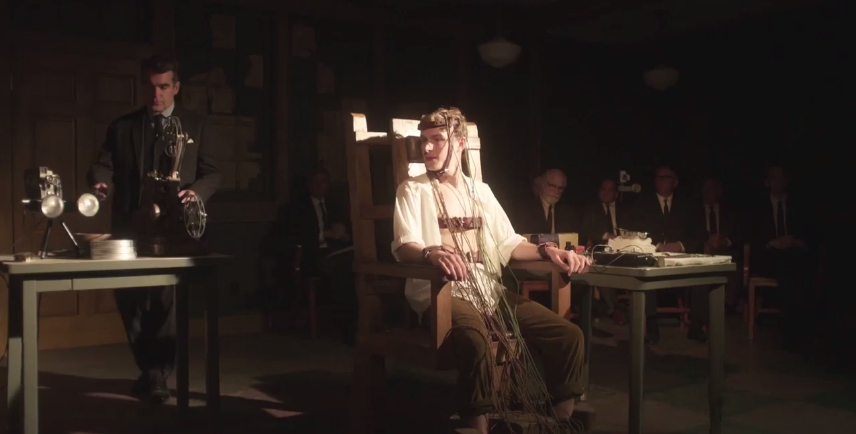
Ted (played by John Berchtold) went to Harvard at the age of 16 and thought he found a trusted confidante in psychology professor Henry A. Murray (Brian d’Arcy James), who was actually grooming him for a three-year-long experiment that was part of MKUltra, the CIA’s mind-control project working to perfect brainwashing techniques to use on Soviet spies. How accurate is the show’s depiction of those sessions?
Sodroski: There are videotapes in Harvard’s archives of some of the sessions. We can’t see the tapes of the sessions because Ted has publicly talked about them, and so they are under lock and key until Ted dies. We were able to get a transcript of some of those sessions with Murray.
Yaitanes: We had to condense it, but we were able to glean what we could from transcripts, from Ted’s journaling, from other people that have been through the program. We feel that that very accurately represents what was there on the day.
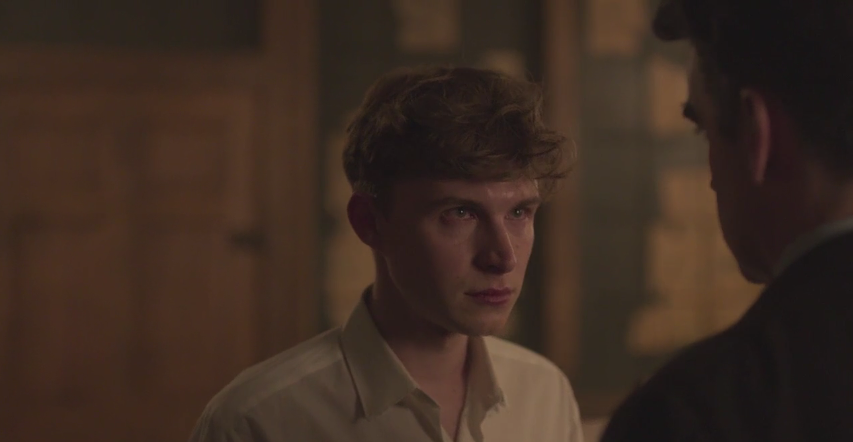
Sodroski: The one really sad thing [was] Ted talks about the Murray experiments in his autobiography or in some of his journals, and there’s this moment when he says, “Why did I keep going back?” In the show, we say, “It’s to prove that he couldn’t break me,” which I think is the heart of the matter. But in his journals, Ted says, “He just promised me at the end there would be a party with girls at it, and I thought if I just hung in there, I would be invited to that party. Still to this day, it bothers me that there was no party.” You just think, “Wow.” I feel like if we had had Ted say that, it’s too much — nobody would believe it. But when you read it in his journals, it’s really heartbreaking because he was literally looking for connection.
There were drafts of this script where we went into his sexual history, which is really interesting. At one point, he wanted to have a sex-change operation. His relationship with his [childhood friend] is sort of borderline homosexual, in a kind of 11-year-old experimental way. We kept trying to thread those moments through in a way that was compassionate and that was part of the total picture of Ted Kaczynski. … but as soon as you put in “Ted Kaczynski wants a sex-change operation,” suddenly everything becomes about that, where it isn’t really about that. It isn’t about sexual confusion; it’s about a desire to just connect with someone, anyone, who can understand me and feel my pain. If we’re talking about Ted, we can say, “Yeah, there’s definitely a sexual component to his isolation and to his mental landscape,” but as soon as you experience that onscreen, it’s like, “Oh, he’s just a sex-crazed freak,” and suddenly, we are on the outside looking in on Ted, whereas I think the power of the story we’re telling is that we are with Ted on this journey and this life review and experiencing it with him.
Yaitanes: He couldn’t put a read on human interaction, so he didn’t know where he fit in. I think thematically, there was something interesting to unpack there, but there was not the room nor the time to do it in a way that would have been respectful to what it was, which was more complex and gray than anything we could have tackled without really having an additional episode to explore it. Our thesis is, and rightly so, that your sexuality does not define you as a person, and I think that is no more apparent than the conversation that is happening out there today, and yet, we continually see that. We just saw it in the news [with the ban on transgender soldiers serving in the military]. We didn’t want to contribute to that conversation in any kind of light that didn’t fully respect our in-depth take of what our research showed us.
We see Murray tell Ted that his mother, Wanda, wrote him and gave him permission to do this humiliating experiment on her son. In the show, Ted says he later learned Murray had lied about the letter.
Sodroski: There is an actual letter from Wanda to Murray saying, “Thank you for choosing my son, and I really hope you’ll be able to help him.” It doesn’t go into all that detail about how he’s a creep and a bed-wetter and a compulsive masturbator. We decided that it’s a little too cruel to have an actual letter from Wanda to Murray, and that it helped tell our story better if it’s a fake letter, even though in reality, Wanda signed a permission slip and wrote on it, “Maybe you’ll be able to help my poor son. He’s totally messed up. A Harvard psych professor — here’s what he needs in his life.” For me, the important thing there was just understanding that Ted came out of this experience distrustful of everyone in his life, including himself.
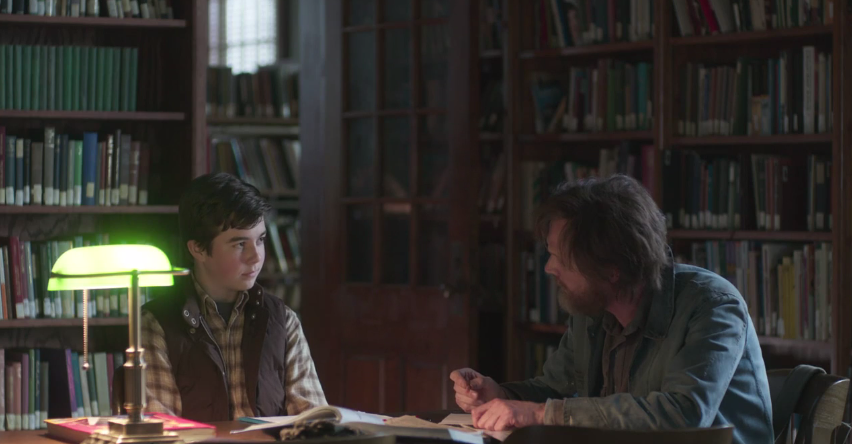
In the series, Ted imagines what his life could have been like had he used all the time he spent being angry and building bombs on finding love and having a child. We see him invited to a birthday party for the local librarian’s son, and amazingly, we desperately want him to go. Did those people really exist?
Sodroski: What’s interesting about Ted is he really did tutor the librarian’s son in math, and he really was friends with the local librarian. This is one of these paradoxes of Ted, which is that he lived totally alone in the woods, he cuts off all his ties with everyone who loves him, and yet he still bicycles into town, he tutors this kid, he’s friends with the librarian. People who knew him kind of liked him; they thought he was a little odd but was a nice guy. Digging into that paradox, there is this kind of fantasy life. He’s sort of trapped in these choices. There is one path he could have taken, that he wants to take, which is about connecting with other people, and yet somehow he is unable to connect with others. There’s this feeling that if he had one real human connection in his life, he could have been saved, but somehow, because of circumstance, because of what happened to him, and because of his own inner flaws, he was never able to find that thing, that love that could have saved him.
Yaitanes: From prison, he was sending practice problems to the character we based Timmy on. That’s not something that we invented. What made him be able to do that? That interested me, [but] Andrew really connected to that. I would always be the counterpoint to that. I was like, “Dude, the guy killed people,” and he would be like, “Yeah, I know but…” People just don’t fall in a clear-cut category. Nowhere in any of my education or research is anything clean cut, is anybody just simply a monster, all good or all bad. I was a Judaic studies minor focusing on the Holocaust and the psychology of the Nazi doctors’ ability to double their personalities, to be able to go home to their wife and kids and then be able to kill children the next day. What did it take, and what did it do to those kind of people? I wanted to present that complexity and how Ted lived his life. I had to put my own personal feelings aside.
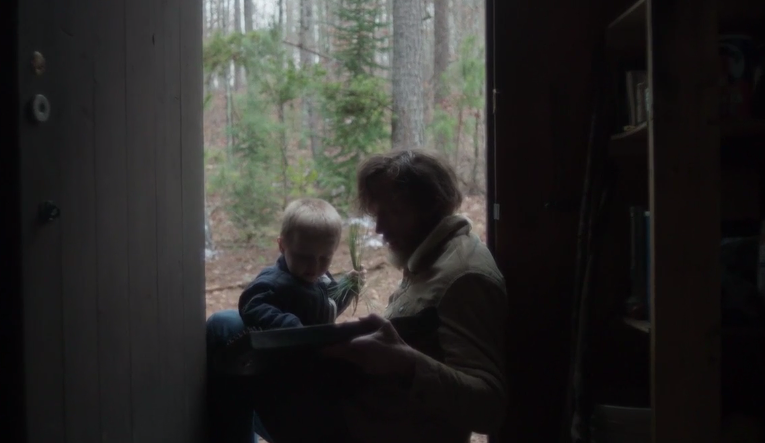
Sodroski: With Ted’s fantasy family, we wrote the skeleton of it on the page, but to see what happens when you put Paul and a two-year-old in the cabin, and when you put Paul and Timmy together in the garden, I didn’t expect that to be as emotional as it is, either on the day that we were shooting it or on the screen. When the kids were introduced into the cabin, it was heaven for them because there’s nothing digital — there are instruments and books and tools and trees. Our DP [director of photography], Zack Galler, shot that stuff in this beautiful, beautiful way. It really was like watching it onscreen, where you have seen Paul alone in his cabin for so long and then suddenly, you’re watching this totally other person living this beautiful life. Then as soon as that was over, the kids were released and we were back to him building bombs in the cabin.
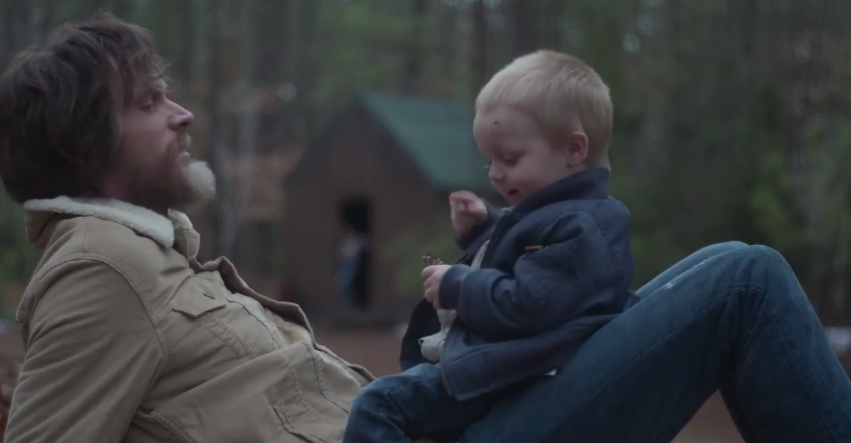
Yaitanes: I’m a huge Terrence Malick fan, and if this show is All the President’s Men, then Episode 6 is kind of like a Malick film dropped into the middle of it. To shoot something with that kind of poetry of an imagined future was really, truly some of my favorite stuff that I shot. It looked exactly how I wanted it to look. I’m showing you what he longed for. He didn’t long for it through the filter of a monster; he didn’t see himself that way. The beauty of that [dream] was important to represent. I tried to be honest in everything that the research spoke about and tried to really put myself in his point of view and show that he was conflicted. … Something like at the end: it was scripted that we revisited these images [of young Ted and Harvard Ted], but it wasn’t as specific as they were all staring at the camera, taking inventory of each other.
Bettany: We figured that out on the morning of shooting it. That was Greg and I in a room before the crew showed up, and it was really special.
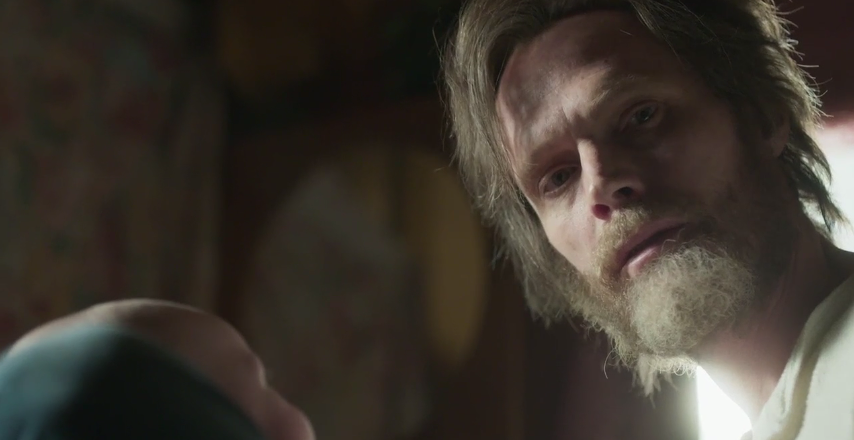

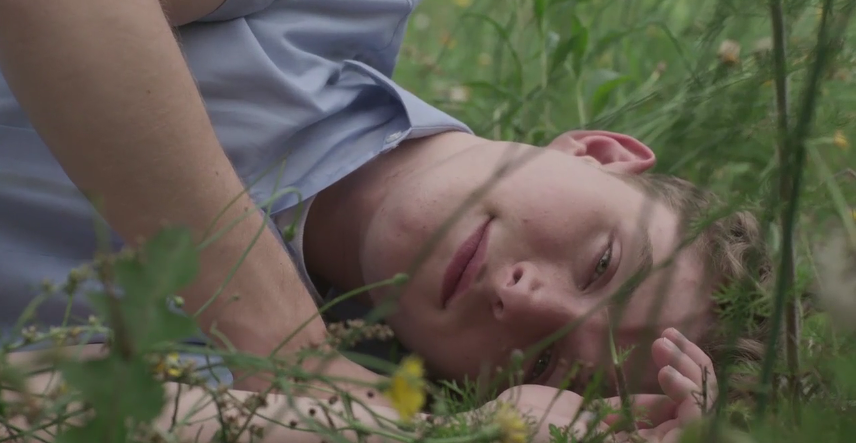
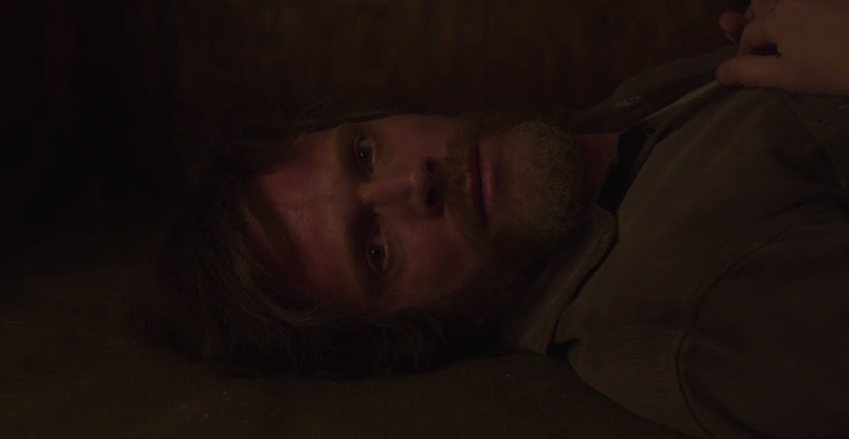
Yaitanes: We worked out that flow so that it geographically made sense. Ted’s in bed, and he’s imagining himself sitting [with the baby] and looking down on the floor. The floor is the grass [where young Ted is lying, and he turns and becomes Harvard Ted, who looks back at adult Ted in bed]. That little circle is my favorite moment. It was about three months between when I did that with Paul and when I finished it. I went back to those images I took of Paul on my iPhone and showed them to the young Ted actors. That was something that was born out of, “Hey, what if we try this?”
I know a lot of directors that over-prepare, and because of the tight prep on this series that we had, there just was not that opportunity to do that, so you all have to depend on each other creatively to take you through the day. That ended up making it an incredibly collaborative experience in Episode 6. We would always start the day just walking through the journey of that character that day so that everything felt lived in. “Ted spent an enormous amount of time in the library. Where does he like to sit? How does he help?” These are all things that just had to feel like he’s done them a million times. I could have watched hours of Paul doing Ted stuff. The original cut of this episode was an hour and a half. I just couldn’t get enough of what Paul was doing.
Sodroski: The thing about Paul — he is so present and so interested in the details of that life. He would ask things like, “Which end of the bed was Ted’s head on when he slept? Was there a mattress? Where did he keep the carrots? What did he eat for breakfast when he woke up in the morning?” You could see the more time he spent in the cabin, the more it felt like his home in this amazing way. Between takes, he would go into the cabin and he would close the doors. It was like he was inhabiting that role and inhabiting that space in a way that allowed those moments to really come to life because he was experiencing this stuff as a person who doesn’t interact with anybody.
Did Bettany meet the actors who played young Ted while filming?
Bettany: I did a lot of taping of stuff for them, so they could listen to how my voice was, but I didn’t meet them in person. I thought they did such a great job. The pair of them were really moving.
Yaitanes: Paul had, on his own, recorded all of John’s lines [for Harvard Ted] just so he could hear the dialect, so that it would line up. That wasn’t something I asked for; that was something that he did unsolicited. Paul is also a director and understands about the bigger good. I find that actors who have directed are even more collaborative because they’ve been there and they know their instinct as a director is to want to help people through things. It just re-frames your whole way of thinking.
Young Ted [Grady Port] really shouldn’t be dismissed in the process, because his work was so beautiful and so hard being a kid and acting [those difficult scenes]. And Harvard Ted [John Berchtold] did the heavy-lifting. I wanted to make sure that he had another presence in there, so casting someone of heft like Brian [d’Arcy James] for Murray was also crucial. The end of that montage of his with Murray — those were entire scenes to be shot so we could extract a piece that we wanted. John came in off-book with 10 pages of monologues in one day that were perfect. It was unbelievable.
Manhunt: Unabomber airs Tuesdays at 10 p.m. on Discovery.
Read more from Yahoo TV:
‘Manhunt: Unabomber’: How Mark Duplass portrayed Ted Kaczynski’s brother
How Jane Lynch researched Janet Reno for ‘Manhunt: Unabomber’
‘Manhunt: Unabomber’: How Paul Bettany got inside Ted Kaczynski’s mind
‘Manhunt: Unabomber’: Sam Worthington on giving FBI profiler Jim Fitzgerald his due

